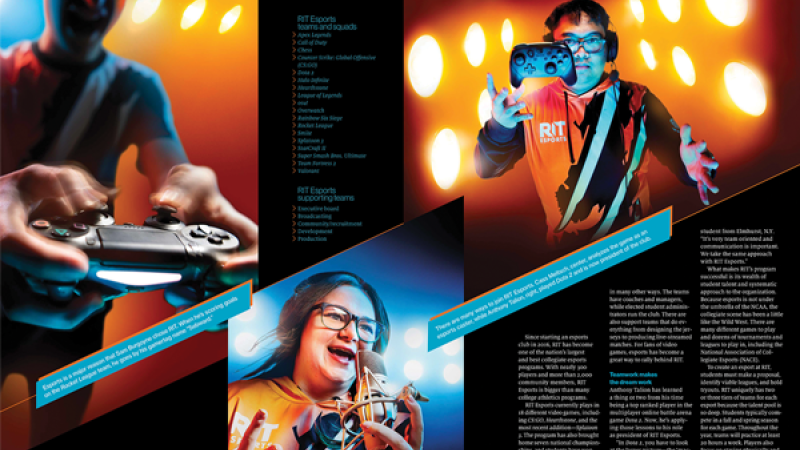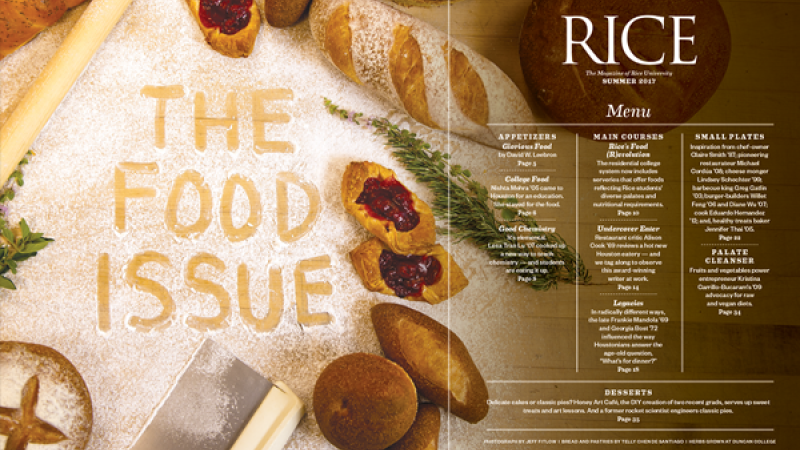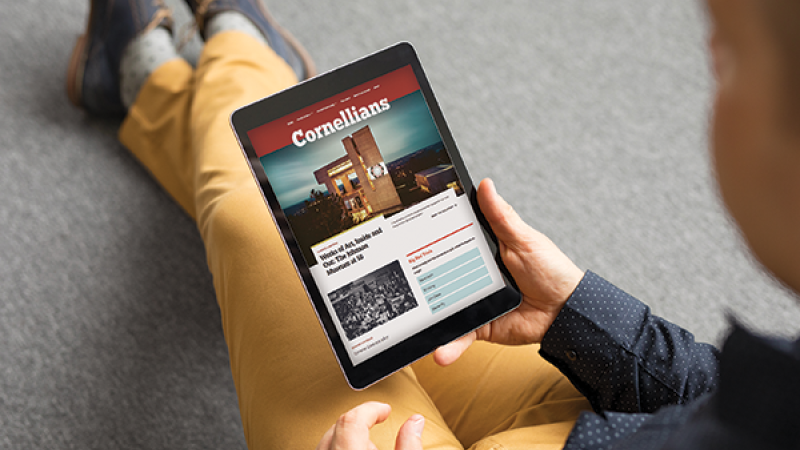Voices: “Sometimes It Just Hits You”
CASE’s annual Editors Forum brings magazine editors together to swap best practices. At the 2024 program in April in Washington, D.C., U.S., Currents asked participants to share their top tips for writing headlines.
“I always look to—whether it’s the subject of the story or other faculty or alumni I speak to—what [did the person] say? More often than not, the final headline that we settle on is either verbatim or based on something that someone said to us. If you’re familiar with standup comedy, we very much look at it as a form of a callback.”
—Andrew Husband, Senior Writer & Editor, Massachusetts Institute of Technology, U.S.
“Be silly. Get some people in a room, throw some things around, try to make each other laugh. And a lot of times, really good ideas will come from the nonsense.”
—Sean Ramsden, Editor, The Lawrentian, The Lawrenceville School, New Jersey, U.S.
“You’ve got to get up from your desk and walk around. And be open to changing the headline. That’s the other thing: People get locked in [on an idea].”
—Theta Pavis, Associate Director of Publications and Strategic Projects, New Jersey Institute of Technology, U.S.
“The best thing about [headline writing] is sometimes it just hits you. [A recent] cover story was about a [Campbell University] professor who’s doing a lot of great work to preserve the Cape Fear River. And thinking what’s going to be the headline for this … ‘He’s crusading for the Cape River,’ and ‘The Cape Crusader’ just kind of came [to me] and I said, ‘Well, that’s perfect. I can quit now because I can’t beat that one.’ Sometimes it just hits you, and when it does, be excited to use it, run it big, and have fun with it.”
—Billy Liggett, Director of News & Publications, Campbell University, Buies Creek, North Carolina, U.S.
“I hate writing headlines. But my tip is: Do a brainstorm. I’ll just start writing down different things, and that gets my brain going. I also send different options to our designer, too, to say, ‘Hey, what do you like? What works for you?’ And eventually, we hit on the right combination.”
—Annie Zaleski, Magazine Editor, Oberlin College, Ohio, U.S.
“[My tip]—which my editors hate—is to use alliteration. But I just love it when I can write a headline with alliteration.”
—Melissa Babcock Johnson, Senior Writer, Connecticut College, U.S.
“I’ve always got a soundtrack playing in my head, so oftentimes I’m dipping into that. Read as much as you can. You’re always going to see references—whether I’m glancing at Sports Illustrated or even watching television, I’m like, ‘Oh, that’s something cultural that I want to keep in the back of
my mind.’”
—Amy Lovett, Editor, Williams Magazine, Williams College, Williamstown, Massachusetts, U.S.
“I’m completely open to bouncing ideas off of people around me, particularly designers and others who are involved with the story to help come up with something good.”
—Sally Scherer, Managing Editor, Kentucky Alumni Magazine, University of Kentucky, U.S.
“First, read every word of the story before you try to come up with a headline. Look at your photos because there might be some synergy between words and pictures that you hadn’t anticipated. And exercise caution with puns. But don’t be afraid to use them.”
—Paul Brockwell, Associate Director of Communications, Medical College of Virginia Foundation, U.S.
Taking Pride in Storytelling
About the author(s)
Hannah Ratzer is Editorial Specialist at CASE.
Tags
Article appears in:

July - August 2024
Creating a Global Network: Dutch alumni teams extend their international reach. Also, meaningful donor and fundraiser relationships, meeting the mission at public regional universities, and connecting the pieces on a community college brand refresh.


